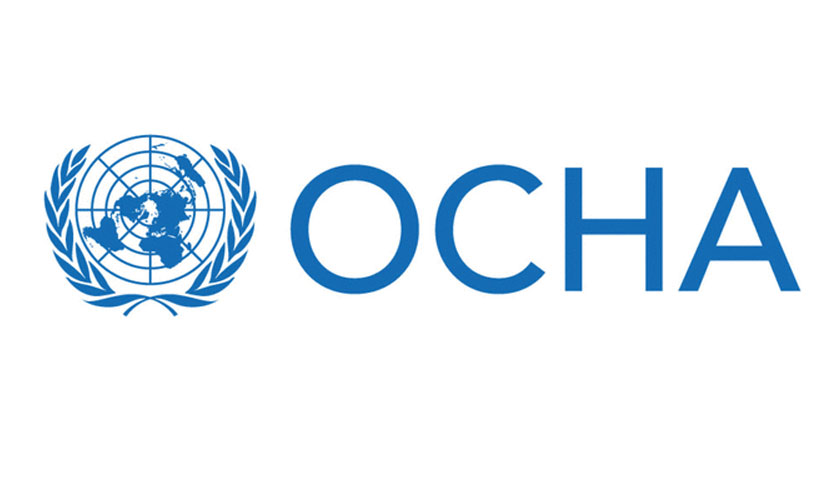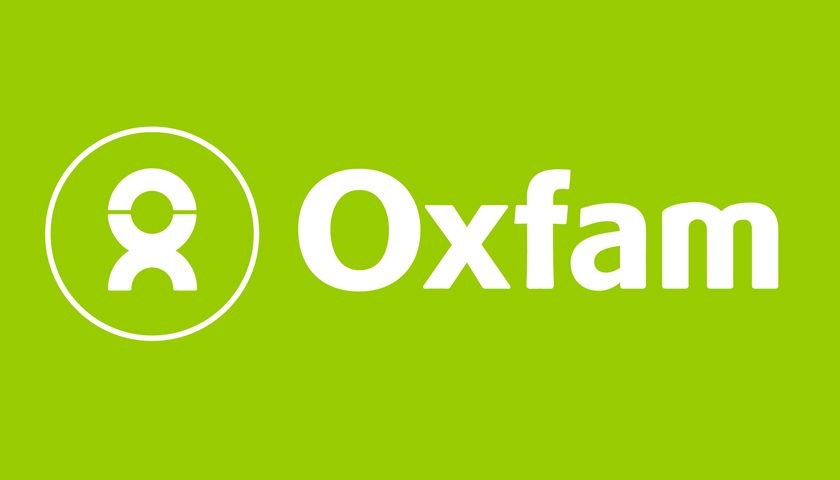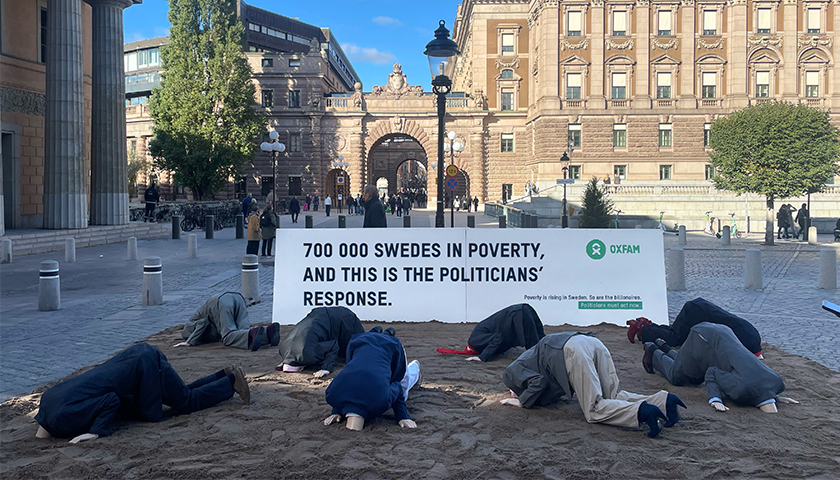With the United Nations estimating some 235 million people across the globe will be in need of life-saving support in 2021, it is vital that aid organizations have unhindered access to those most in need and humanitarian appeals are fully funded, Oxfam and five other aid organizations said today.
The UN Office for the Coordination of Humanitarian Affairs (OCHA) has launched the Global Humanitarian Overview, a projection of the humanitarian needs of people impacted by conflict, acute hunger and the devastating impact of COVID-19. The report estimates 35 billion US dollars are needed to reach 160 million people with life-saving support in 2021.
The NGO signatories (Oxfam, CARE, Humanity & Inclusion, the International Rescue Committee, Save the Children, and World Vision)- all of whom work on the frontline of conflicts across the globe – call on donors to urgently show their commitment to the most vulnerable by fully funding humanitarian responses. However, they also emphasized that needs cannot be fully met without a firm commitment from armed actors and governments to ensure that humanitarian workers have unimpeded and safe access to people in need of support.
It is vital that warring parties adhere to the global ceasefire called for by the UN Secretary General and the UN Security Council to prevent further civilian casualties and ensure that people in need of assistance have access to life-saving services and protection. To support this, states should curb arms sales to warring parties if they are likely to be used to commit or facilitate serious violations of international law or against civilians, the aid organizations said.
These efforts are even more important after a year in which COVID-19 has pushed communities into poverty, increased the risk of famine, and stretched health systems to breaking point.
Today, a deadly combination of conflict and bureaucratic impediments is causing major delays to aid delivery. UN data shows that between 2018 and 2019 the number of cases of access being denied to children and their families increased from 795 to 4,402: the highest number ever recorded.
Yemen is widely recognized as one of the most challenging places to deliver aid due to conflict and restrictions. This has led to a spike in the number of people living in ’hard to reach areas’, from 5.1 million in April 2019 to a staggering 19.1 million people in November 2020, according to the UN figures.
If access continues to be hindered, vulnerable families cannot be reached at a moment when the country is on the brink of famine and infrastructure to deliver support is badly damaged, notably by the extensive use of explosive weapons in populated areas, the NGOs warned.
COVID-19 has further compounded challenges in global humanitarian access. Since the pandemic began, populations in more than 50 countries are not getting the humanitarian assistance they need due to access constraints.
While some restrictions were rightly put in place to curb the spread of the virus, there have also been attacks on healthcare and humanitarian workers because of their role in the COVID-19 response. Furthermore, governments and armed actors have imposed bureaucratic barriers and limited access to populations, gravely hampering the ability to deliver support to communities.
Inger Ashing, CEO of Save the Children said:
“Millions of vulnerable children don’t know where their next meal is coming from, or if they will survive the next airstrike. Fighting in countries such as Yemen, Afghanistan, Syria and DRC continued or even increased despite calls for a global ceasefire. At the same time, COVID-19 is contributing to conditions likely to exacerbate conflict, such as rising levels of hunger and poverty. This deadly mix of hunger and conflict is partly rooted in the pandemic, and in the unwillingness of parties to lay down their weapons and focus on fighting the virus.”
Sofia Sprechmann, Secretary General of CARE International:
“COVID has triggered such a massive increase in gender-based violence (GBV) that the United Nations has labelled it a “shadow pandemic.” It is high time it comes out of the shadows into the spotlight. GBV and sexual and reproductive health services are essential and life-saving services that States are obligated to provide under international human rights law, including during conflict. But all too often the responsibility is falling to local women-led organisations, which are struggling to meet the skyrocketing needs. Now is the time to ensure GBV and SRH services are integrated and available to all in a safe, sex and age appropriate and user-friendly manner, including by allocating budgets and resources, especially for local women-led organisations.”
Manuel Patrouillard, CEO Humanity & Inclusion
“In 2021, the social and economic impact of COVID-19, the deepening food insecurity in some regions of the world and protracted armed conflicts is a devastating combination impacting millions of civilians needing humanitarian assistance. Humanitarian organisations and people in need of humanitarian assistance and protection, often in war zones, face many difficulties and obstacles in the provision of humanitarian aid. Obstacles take several forms, from increasing bureaucratic impediments to the clear ban of access to certain areas. Humanitarian workers – including medical teams– are also regularly targeted by parties to a conflict… At every step, our work is impeded. Now it is more urgent than ever that restrictions are lifted and the security of humanitarian workers ensured.“
David Miliband, President and CEO of International Rescue Committee
“We are living in an age of impunity where civilians and humanitarians have become targets, and accountability for violations of international law, including the denial of aid, is absent. The record-breaking humanitarian needs announced today demand new levels of international cooperation and leadership to address. States must demonstrate both their collective commitments to humanitarian funding and international law, as well as their willingness to hold violators to account. Governments and warring parties should heed the call for a global ceasefire. As long as bombs are falling and civilians are forced to flee, any pandemic response will struggle to succeed.”
Gabriela Bucher, Oxfam International Executive Director
“The COVID-19 pandemic is being felt with profound harshness for hundreds of millions of people at the intersections of conflict, the climate crisis, gender-based violence and inequality. Communities in countries such as Yemen, the Central African Republic and Syria were already struggling to overcome malnutrition and the spread of disease, with a lack of clean water and health facilities compounding risk. This is a global crisis that requires global solidarity: money, access and ultimately action is urgently needed to support those in need of life-saving support.”
Andrew Morley, World Vision International President and CEO, said:
“This pandemic continues to devastate children’s futures, with shockwaves which are shattering the dreams of an entire generation — particularly the most vulnerable, already forced from their homes because of conflict. Children tell us that being out of school exposes them to violence; that life-saving immunisations are on hold because health services are under strain; and that hunger and malnutrition is getting worse. We implore those in power to listen to these children’s voices, and to keep hope alive by putting politics and fighting aside to ensure children can realize their God-given potential.”



